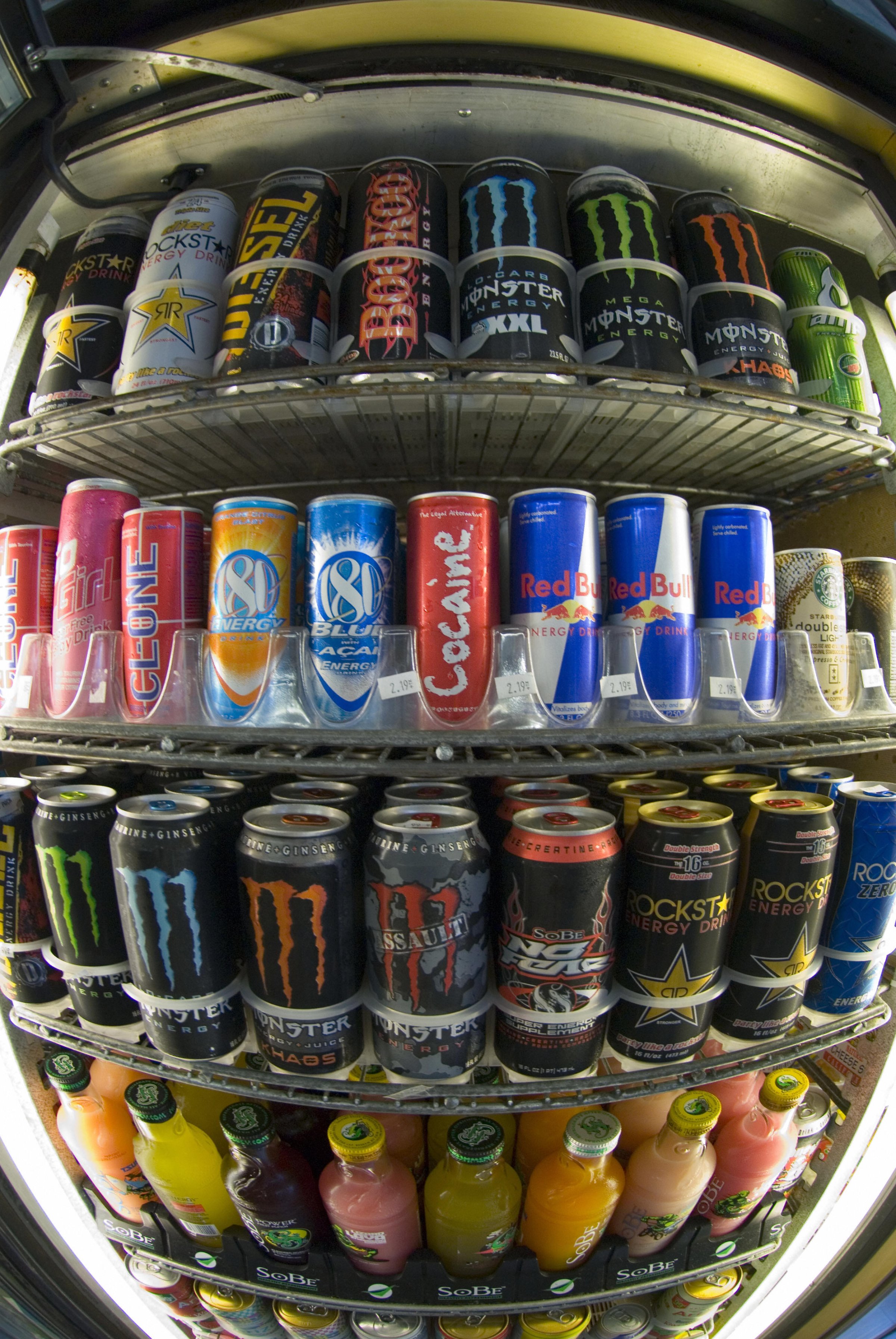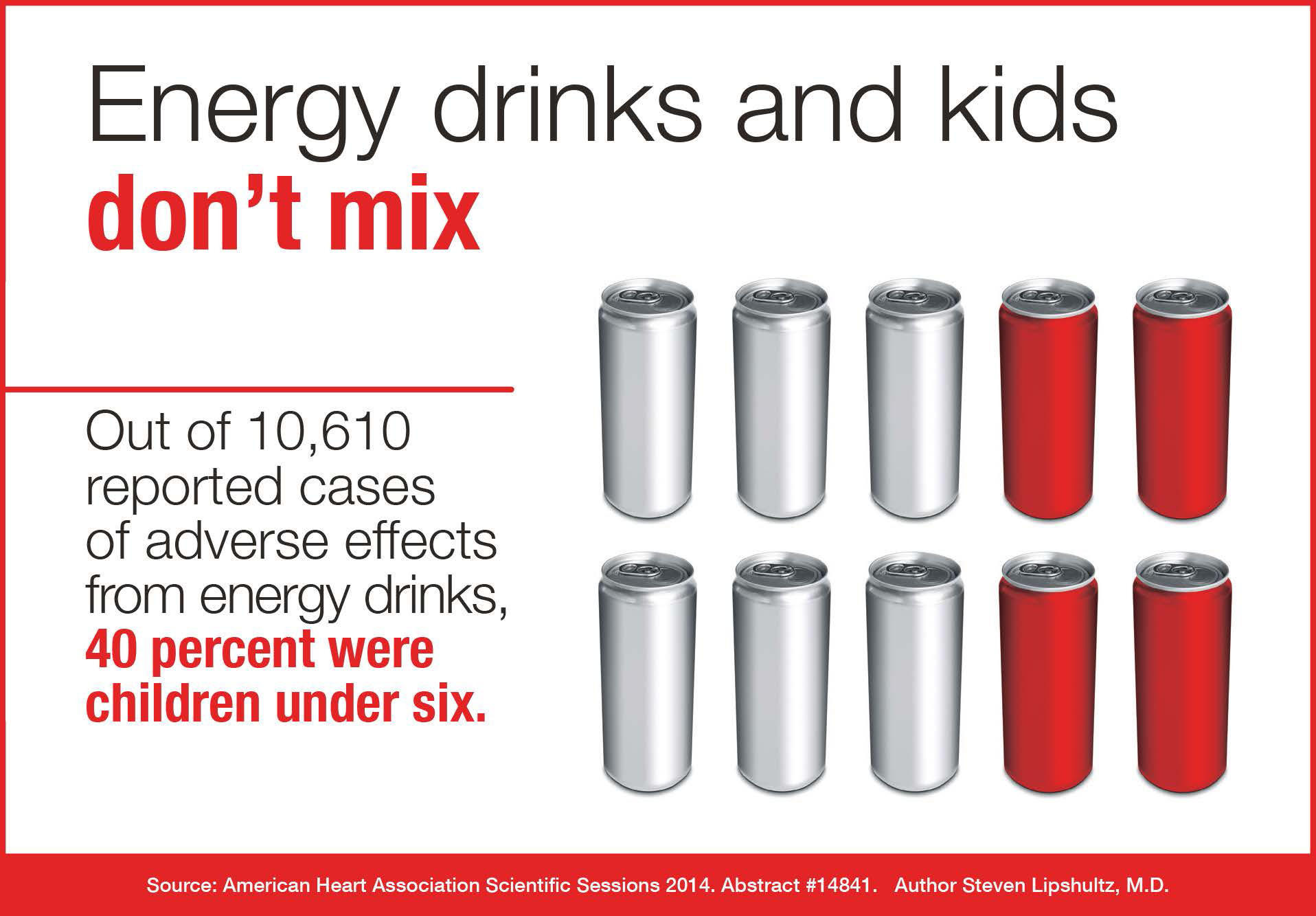
Over 40% of calls to U.S. poison centers concerning energy drinks are for kids under age 6, some of whom reported experiencing symptoms like serious cardiac and neurological problems.
In a new study that examined the American Association of Poison Control Centers’ National Poison Data System, looking at reports from Oct. 2010 to Sept. 2013, researchers found that of the 5,156 reported cases of energy drink exposure, 40% where unintentional exposures by kids. Symptoms related to the heart, like abnormal rhythms, were noted in 57% of the reported cases. Neurological issues were reported in 55% of the cases.

Prior data has shown that young kids are passing up caffeinated beverages like soda, but are instead consuming more energy drinks and coffee. The FDA is currently investigating the risks of added caffeine in products consumed by young people.
The trouble with energy drinks is that they are not always regulated the same way as other beverages. For instance, some are considered dietary supplements, and don’t need FDA safety approval. The FDA considers caffeine to be safe, but some energy drinks can contain up to 400 milligrams (mg) of caffeine per can, as compared to 100-150 mg in a coffee, the study’s authors say.
Researchers are unsure what part of energy drinks can cause adverse health problems. It’s possible other ingredients besides caffeine can result in medical issues.
The American Beverage Association responded to the study, which is not yet published but was presented recently at the American Heart Association’s Scientific Sessions:
“This abstract has not been published and therefore the authors’ full methodology and analysis is not available for review. In the past, various experts have raised concerns regarding misinterpretation and inherent limitations of data from National Poison Data System when it comes to Energy Drinks. Based on the most recent government data reported in the journal Pediatrics, children under 12 have virtually no caffeine consumption from energy drinks.
Even so, leading energy drink makers voluntarily place advisory statements on energy drink packaging stating that energy drinks are not recommended for children. They also have voluntarily pledged not to market these products to children or sell them in K-12 schools. These guidelines and more are noted in the ABA Guidance on the Responsible Labeling and Marketing of Energy Drinks.”
More Must-Reads from TIME
- Cybersecurity Experts Are Sounding the Alarm on DOGE
- Meet the 2025 Women of the Year
- The Harsh Truth About Disability Inclusion
- Why Do More Young Adults Have Cancer?
- Colman Domingo Leads With Radical Love
- How to Get Better at Doing Things Alone
- Michelle Zauner Stares Down the Darkness
Contact us at letters@time.com